Exhibitions
2015
Until 19 Nov
Curators: António Pinto Ribeiro and Rita Xavier Monteiro
www.unplace.org
Read more
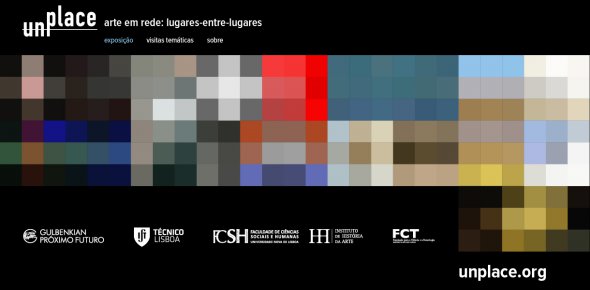
The unplace, networked art:places-between-places online exhibition brings together Internet and web-specific artworks in which the tensions between real and virtual spaces are highlighted through online practices, ranging from geopoetics, fiction and hacktivism to participatory projects in networked environments.
This curatorial project was based on the research work carried out by the unplace team, and it started with an International Call for Projects, in 2014, aiming to find “artistic proposals that challenge the modes of creation and reception of works of art in a purely virtual and networked exhibition space, in a museum without a place” (see www.unplace.org ).
19 Jun – 27 Sep
Gulbenkian Park (next to the entrance of the Art Library)
Read more
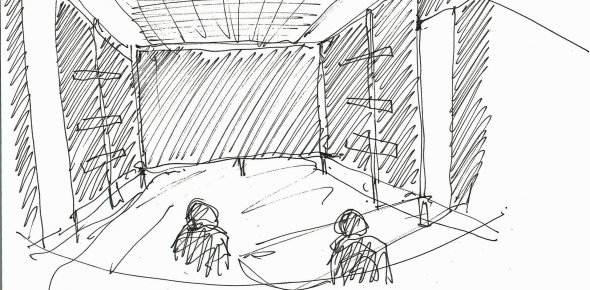
In this year's edition of the installation (a previous edition took the form of a tent), we have decided to build an archive-house using walls from previous Next Future exhibitions. These walls will be partially covered with pages from the Próximo Futuro / Next Future issues that have been published over the past seven years of debates, productions, creations, film screenings, parties, etc.
21 Feb – 19 Apr
Galeria de Exposições Temporárias, Piso -1
Read more
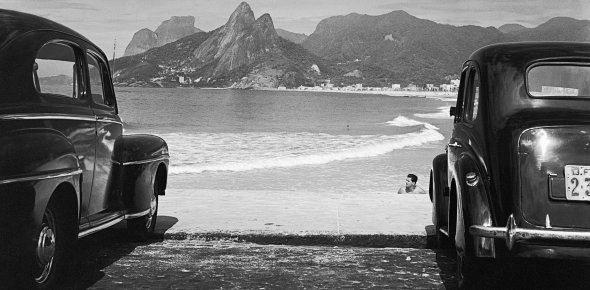
An exhibition from The Instituto Moreira Salles Collection, coproduced by and the Staatliche Museen zu Berlin, the Gulbenkian Programme Next Future and the French Branch (where the exhibition will be held from 5 May until 26 July 2015). Photographs by José Medeiros, Thomaz Farkas, Marcel Gautherot and Hans Gunter Flieg, from the Instituto Moreira Salles.
2014
20 Jun – 7 Sep
Curator: António Pinto Ribeiro
Galeria de Exposições Temporárias – Edifício Sede - Piso 0 e Jardim
Read more
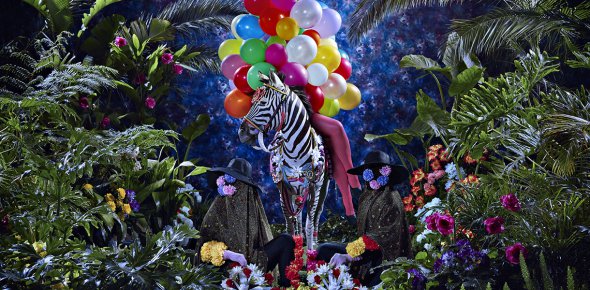
“We who wished
To lay the foundation of kindness
Could not ourselves be kind.”
Brecht “To Those Born After“ *
20 Jun – 30 Sep
Project by Subvert
Jardim da Fundação - Free Admission
Read more
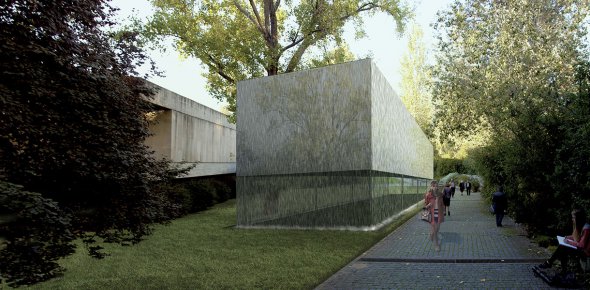
This proposal was born of a will to fantasize a whole continent – South America – in an architectonic object.
28 Mar – 1 Jun
Curator: Wim van Sinderen
Main building - temporary exhibitions gallery, floor 01
Read more
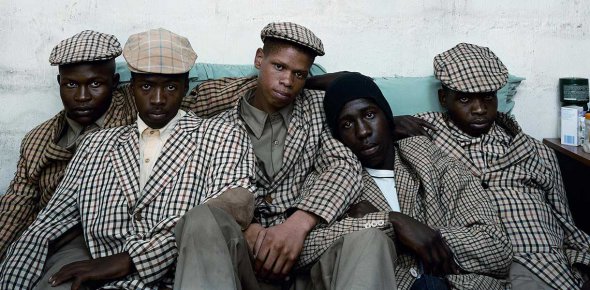
Este é o Lugar | This Must Be the Place is the first retrospective for Pieter Hugo (b. Johannesburg, 1976). Since 2003 Hugo has photographed people in their daily lives in South Africa and sub-Saharan Africa. The ramifications of the end of apartheid, for people and the landscape of South Africa, as well as the implications of global commerce and the complexity of the notion of post-colonial Africa are themes that circulate throughout his work.
2013
22 Jun – 1 Sep
Main building - temporary exhibitions gallery, Floor 00
Read more
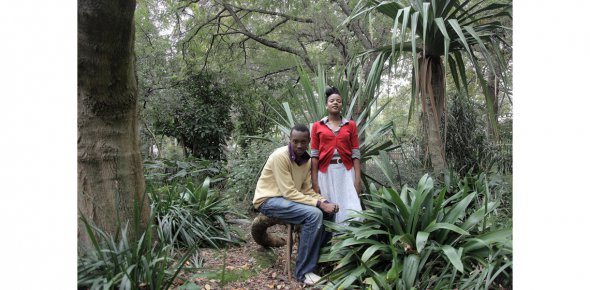
It is the exhibition of the 9th edition of the Bamako Photography Encounters that is presented here. The theme proposed to the photographers was “For a sustainable world”. In a continent where, in many countries, they are still far from reaching the minimum levels set by the Kyoto Agreement, choosing a theme of this nature, with all the implications that it has in terms of environmental policy, economic decisions, environmental protection, and agricultural, fishing and industrial regulations, is, to say the very least, a revolutionary proposal. And this was how the scores of photographers that took part in this exhibition with hundreds of photographs and videos, offered visitors the chance to see the state of the world, where, to quote the curators, “being on Earth and living together” remain obvious notions that immediately call for drastic solutions.
Michket Krifa and Laura Serani (curators)
22 Jun – 1 Sep
Main building - temporary exhibitions gallery, Floor 01
Read more
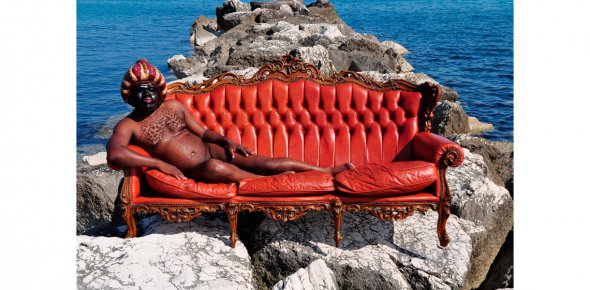
An exhibition with photographers from Southern Africa. Looking at the past, the photographs do not derive from a “constellation of ethnic groups or tribes”, to mention the thesis proposed by Elikia M’Bokolo, and this is an essential premise in the curatorship of this exhibition entitled “Present Tense”. We are quite far removed from the photographs taken of black people who “officially […] were frequently depicted in the same visual language as the flora and fauna”, to quote Santu Mofokeng in “The Black Album Photo”. We are interested in showing and comparing the work of photographers who live or travel through a series of cities situated mainly in the Southern Africa region without there being anything to indicate any visual or cultural identity for the region. Regardless of the genres – portrait, landscape, document, photojournalism – these are photographs about the “Present Tense” that we want to show, and this concept of the “Present Tense” also includes the tension between languages, the choice of colour or black and white and the detail diverging from the panoramic view. With photographs by the photographers Délio Jasse, Dillon Marsh, Filipe Branquinho, Guy Tillim, Jo Ractliffe, Kiluanji Kia Henda, Mack Magagane, Malala Andrialavidrazana, Mauro Pinto, Paul Samuels, Pieter Hugo, Sabelo Mlangeni, Sammy Baloji and Tsvangirayi Mukwazhi.
António Pinto Ribeiro (curator)
“Present Tense” is a co-production of the Next Future Programme and the Calouste Gulbenkian Foundation’s Delegation in France.
21 Jun – 29 Sep
Fátima Mendonça
Jardim Gulbenkian
Read more
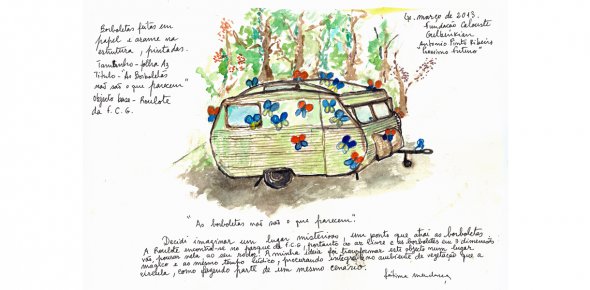
Butterflies are not what they seem
I decided to imagine a mysterious place, a point of attraction for butterflies. The Caravan is in the Gulbenkian Gardens, and is therefore outdoors, and the three-dimensional butterflies will settle on and around it. My idea was to transform this object into a place of magic and playfulness at the same time, seeking to integrate it into its surrounding environment of vegetation, as if it were all part of the same scene.
21 Jun – 29 Sep
Nicholas Hlobo
Jardim Gulbenkian
Read more
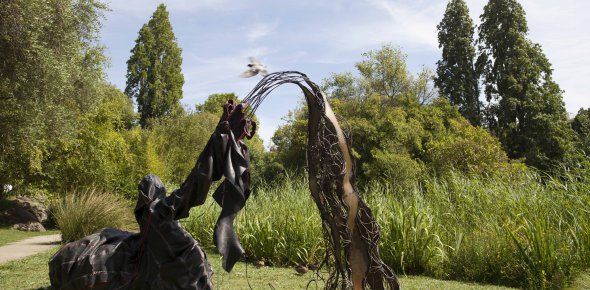
Following a visit to the Calouste Gulbenkian Foundation Garden, Nicholas Hlobo drafted a proposal for an installation due to be located alongside its lake. “The work draws on ecclesiastical references drawn from the bible: Eve and the curse of maternity (the mother giving birth); the wife of Lot, transformed into a statue of sale, and the Garden of Eden. (…) Water plays a very important role here in conveying a message of creation as it represents the source of life.”
Umnka Lothe finally ended up as a purpose designed piece especially conceived for the Garden. From the original idea through to the final result, there is an entire process of maturing that, when known, aids us in understanding the object and its framework within this landscape. « (…) I took a decision to fuse them so that they give an idea of mating or trying to consume one another. The rubber was meant to be free standing from the metal figure. That was to suggest that idea of Adam and Eve in the Garden of Eden. When looking at that during the process of creating this body of work, it somehow sounded lacking of something. Then, the thought sprang to mind that they should become co-joined in order to suggest notions of intimacy or some sort of wrestling as opposed to having the two forms just standing side by side as if they are waiting for a whistle to be blown. I took them to the stage where they have taken some action and charged into/onto one another. This is to give the story line some motion instead of having them frozen in a rather stationary stance. The title Umnka' Lothe translates as Lott's wife.»
21 Jun – 5 Oct
Catarina Pinto
Jardim Gulbenkian
Read more
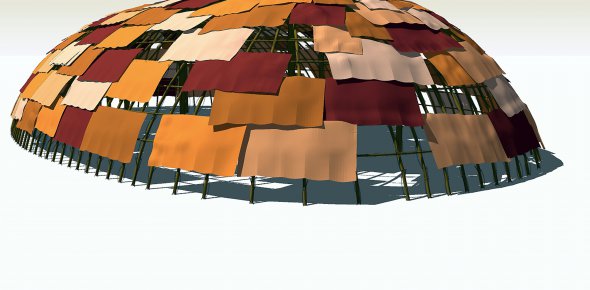
A primitive shelter made entirely from natural raw materials. It combines a minimal structure of eucalyptus poles with the genuine plastic wealth of natural materials in a pure state. Earthy colours, warm shades and textures inspired upon African ethnic tribes. The materials used were gathered on a journey through different Portuguese landscapes, resulting in a range of colours of the earth (clay), which have impregnated the panels covering the Hut. In this way, emphasis is placed on the vernacular and holistic character of the construction, which, as an expression of craftsmanship, receives the visitor and relates him to the place.
21 Jun – 29 Sep
Catarina Branco
Jardim Gulbenkian
Read more
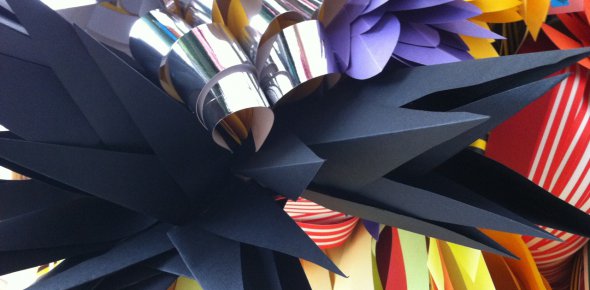
Catarina Branco develops her work from the basis of the plasticity of everyday life and the popular imagination, establishing inner relationships for this purpose. Her emotions and the use of paper cut-outs, as a technique that she inherited from her forebears, have enabled her to interpret the stories of a people as portrayed in its most diverse forms. The four Shrines appear in different areas of the garden, preferably in places where the vegetation is at its most dense, in the midst of small copses, as these are places of relaxation, serenity, apparitions, revelations and reconciliation, where people are almost obliged to stop for a while and engage in reflection.
21 Jun – 29 Sep
Luís Nobre
Jardim Gulbenkian
Read more
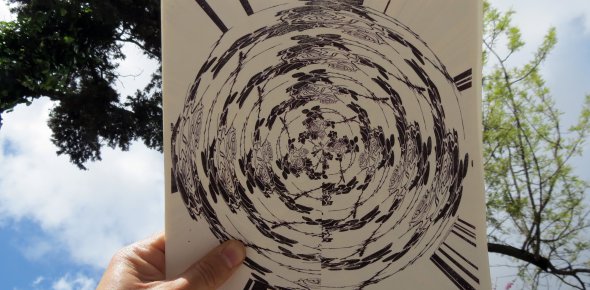
Based on the footpaths proposed by the Gulbenkian Gardens, we are offered a reading of the surrounding area, where syntheses of typical plant motifs and patterns from different parts of the globe (China, Greece, India and Borneo, among others) converge to offer a distorted view of our perspective, of what is real and/or represented.
12 Apr – 26 May
Main building - temporary exhibitions gallery, Floor 01
Read more
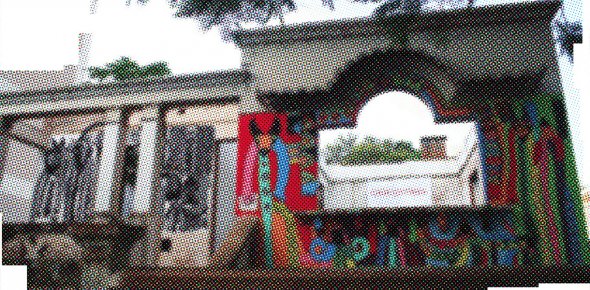
12 April to 26 May 2013
After three annual events in Maputo (2010, 11 and 12), and with experience accumulated from the intervention in Mindelo, now we have the "Occupations" in Lisbon. They may not necessarily look like the first "Occupations"; but considering the importance of the process and the relevance of much of the work produced, "Temporary Occupations - Documents" will be the documentary witness to a process, a recent physical archive, with objects or their replicas.
2012
20 Oct – 16 Feb
Hélène Veiga Gomes
CARPE DIEM – Arte e Pesquisa
Read more
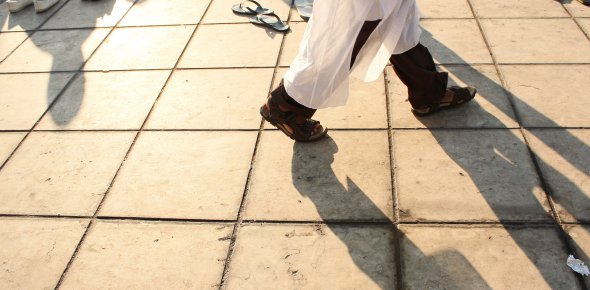
A corridor, an antechamber, another, the main hall. A poster of Mecca. A source of water. In the distance, the voice calling the faithful. ”Variations of Faith” is an installation that sets out to recreate the symbolic spaces of a contemporary mosque. In researching the ritual dimension of Muslim worship, Hélène Veiga Gomes worked on the basis of how to transpose the prayer room to the exhibition room, thereby setting up an experiment in the reformulation of the elements needed for prayer. The ablutions, the removal of shoes and prayer are the three moments staged in this re-enactment, suggesting a gradual demystification of the different sacred elements in order to return to the central issue: how to think about faith.
22 Jun – 30 Sep
Nuno Viegas
Jardim Gulbenkian
Read more
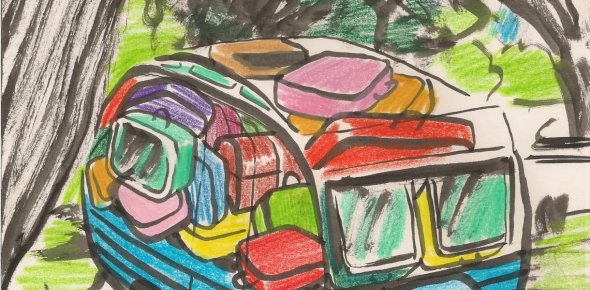
The RV has particularly interested me as a nomadic object.
22 Jun – 30 Sep
Marcelo Jácome
Jardim Gulbenkian
Read more
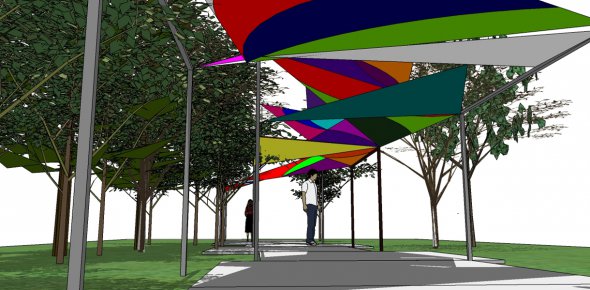
22 Jun – 30 Sep
Camila de Sousa
Jardim Gulbenkian
Read more

"3x4" is the result of an immersion in two female prisons in Maputo, the Jail and the Center for Women's Imprisonment in Ndlhavela. In Mozambique, the exercise and respect for women’s rights, who are in a prison regime, constitute a major challenge: beyond the arbitrary acts committed by investigating authorities, the limits for detention, poor housing conditions, food and hygiene, there is a prevailing patriarchy that reinforces the unequal treatment given to women by the Mozambican justice.
22 Jun – 30 Sep
Filipe Branquinho
Jardim Gulbenkian
Read more
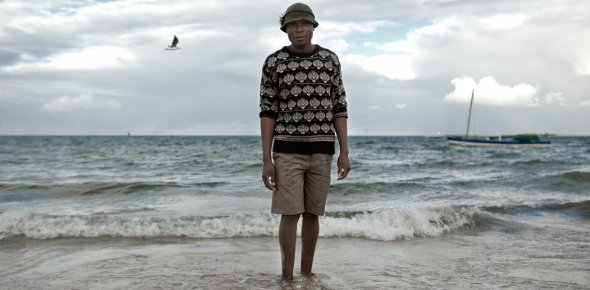
This series of six photographs is a small cutout of a photographic project called "Occupations" that began in early 2011.
2011
18 Nov – 30 Dec
Pieter Hugo
Théâtre de La Ville, Paris
Read more
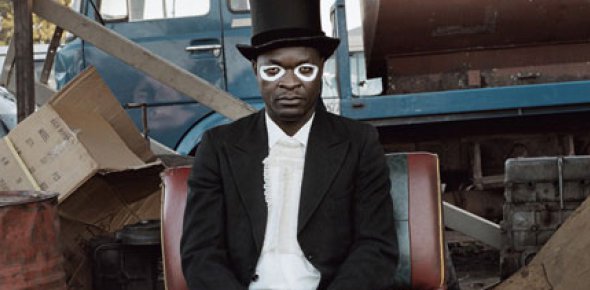
16 Nov – 15 Jan
Roberto Huarcaya
Palácio Galveias
Read more
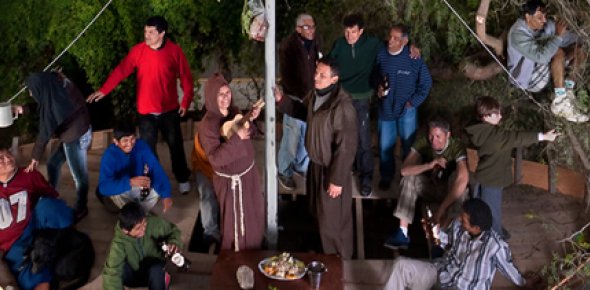
16 Jun – 30 Sep
Nandipha Mntambo
Gulbenkian Garden
Read more
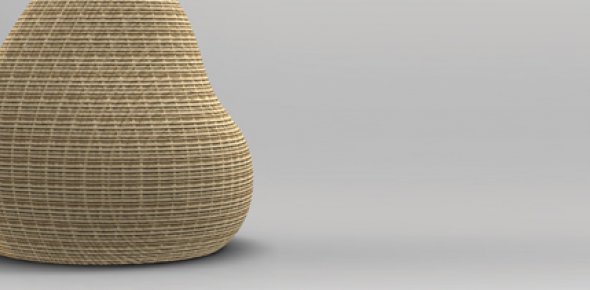
Born in Mababane, Swaziland (1982), Nandipha Mntambo now lives and works in South Africa. Using a wide range of different media – from painting to video – the artist has concentrated in recent years on femininity and its representation and expression based on the female body. Nandipha is interested in the themes that touch upon the strange and magical dimension of the human condition, as evidenced by the representations of the mythical android figures that have served as a subject-matter for her painting and through which she has portrayed herself.
16 Jun – 30 Sep
Bárbara Assis Pacheco, Délio Jasse, Isaías Correa, Rachel Korman
Gulbenkian Garden
Read more
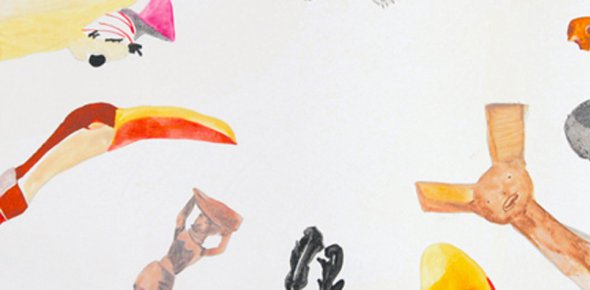
Carried over from last year’s events into this year’s edition of the Next Future public art programme are the sunshades designed by the architect Inês Lobo (Lisbon, 1966), which will again be scattered around the garden. However, this year we’ve added a series of images to the initial elegance of these sunshades and to their general appearance of simple and inexpensive manufactured objects. In fact, four artists – Rachel Korman, Bárbara Assis Pacheco, Isaías Correa and Délio Jasse – were invited to take part, being asked to create specific designs for these unusual supports. The designs were later printed and now enliven even more these objects that provide visitors with a most welcome shade.
16 Jun – 30 Sep
Raqs Media
Gulbenkian Garden
Read more
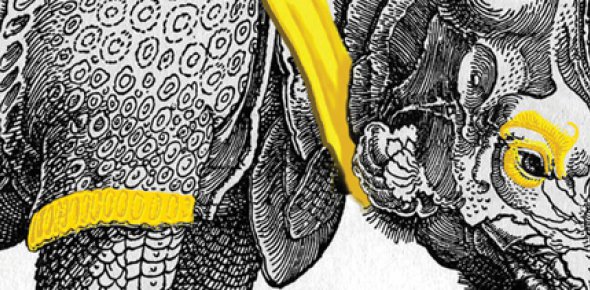
Raqs Media Collective is a collective of artists, media practitioners, curators, researchers, editors and catalysts of cultural processes. Their work, which has been exhibited widely in major international spaces, locates them in the intersections of contemporary art, historical enquiry, philosophical speculation, research and theory – often taking the form of installations, online and offline media objects, performances and encounters.
16 Jun – 30 Sep
Kboco
Gulbenkian Garden
Read more
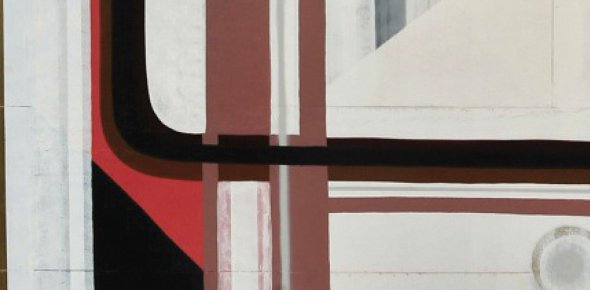
Márcio Mendanha de Queiroz, who signs his works with the name Kboco, was born in Goiânia, in Brazil, in 1978, and currently lives and works in São Paulo. He began by painting graffiti on the walls of Goiânia and Olinda, until he was invited to work with the galleries of São Paulo and immediately started to exhibit his work at biennials and in international museums.
14 May – 28 Aug
Rooms 1 and -1
Read more
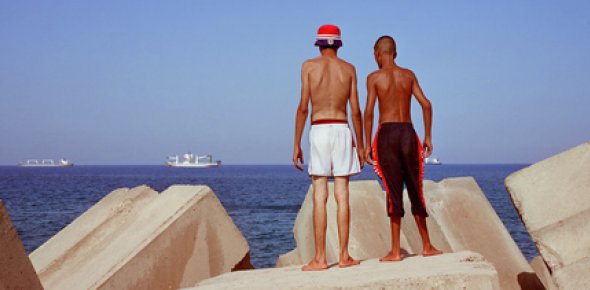
The exhibition continues of photographs by African and Afro-American artists, resulting from the 8th Bamako Photography Encounters, the most important biennial of African photography. There are scores of photographs and videos by 53 photographers, all of them touching on the theme of “Borders”.
2010
18 Jun – 30 Sep
Barrão
Lake, east side
Read more
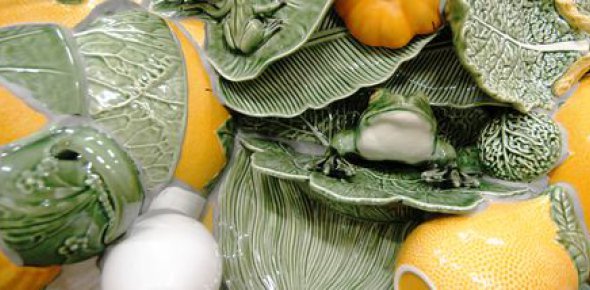
Barrão (Rio de Janeiro, 1959) has long been taking the functional purpose away from utensils and affording them a special fun quality, creating objects that are imbued with a capacity for inspiring dreams, delirium and fantasy. The pottery pieces that he has recently produced, resulting from collages of the most diverse forms and utensils made of porcelain and clay, are built with a sense of humour, with elegance and delicacy.
18 Jun
Barthélémy Toguo
In front of the Gulbenkian Museum
Read more

"Liberty leading the people” by BARTHÉLÉMY TOGUO (Cameroon, 1967) is a work that typifies the multidisciplinary efforts of this artist – sculpture, painting, drawing, performance – which he has been devoting for a long time now to themes linked to exile and the south-north migratory flows.
18 Jun
Inês Lobo
Gulbenkian Garden
Read more
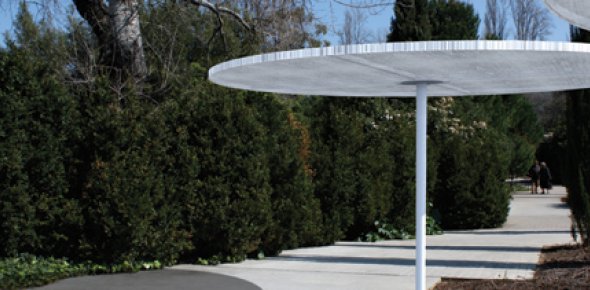
The more frequent visitors to the Gardens of the Gulbenkian Foundation will remember seeing, in previous years, rows of awnings designed by the architect Teresa Nunes da Ponte, which were always taking on different pictorial forms. This year, Inês Lobo (Lisbon, 1966), who, among other projects, was the architect of a school for an African city, has designed a group of sunshades made out of simple material at substantially low costs.
18 Jun
Kilian Glasner
Garage
Read more
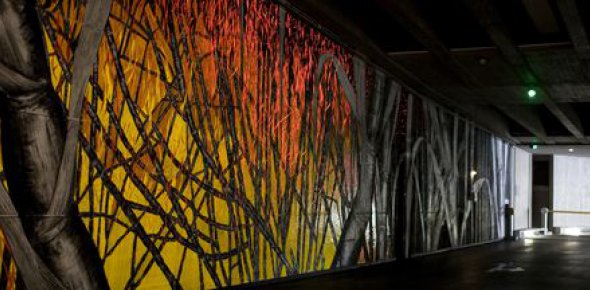
For the western wall of the garage, Kilian Glasner (Recife, 1977) designed a mural work that she has entitled O BRILHANTE FUTURO DA CANA-DE-AÇUCAR (The Brilliant Future of Sugar Cane).






























